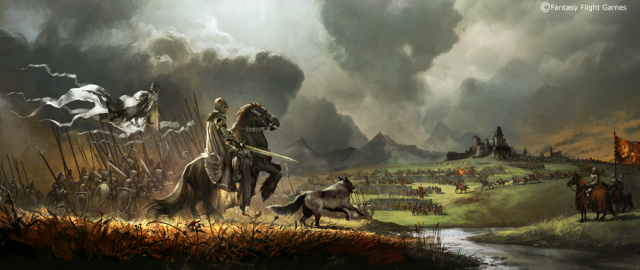Second Orcish War
In the years after the First Orcish War, the population of Teufeldorf swelled. Those who came to fight the orcs as mercenaries and exiles, for the most part, stayed in the city. Farmers and ranchers who had been driven close to the castle, ventured further and further from the city - finding the lush valleys and sweeping prairies ideal for establishing homes and villages. While the city grew and prospered, the threat of the orcs was far from over.
The military government, established by General Henrik Linius during the First Orcish War remained in force. Partially to combat roving orcs, but also as a check on the activities of the less-than-savory, Linius ruled the city with an iron, often brutal, hand. In a few short years, it became obvious to the General that a push to drive the orcs north across the River White was needed. A secondary purpose for this action was to provide an outlet for the aggressive citizenry attracted by the first war.
In 361 TA, the City-State, calling upon alliances with their southern neighbors, mounted a long-term campaign to drive the orcs north of the River White. Essentially, the army started in the south and moved north each campaign season - sweeping the fleeing orcs in front of them. For twelve years, the Second Orcish War raged. During this time, there were no meaningful attacks on Teufeldorf. Casualties were heavy, mostly in small skirmishes between the enemies. There were few large-scale battles.
In 372 TA, Linius met with the leaders of the Red Axe, Evil Eye, and Bloody Claw warbands at Rivershaw Castle. There, a blood oath was made that the orcs would refrain from moving south of the River White. In exchange, the Crown would recognize the Orc Nation and would not move north of the River White. Both agreed that any found violating this treaty would be treated as outlaws - and punished appropriately.
With the end of the Second Orcish War in 372 TA, the boundaries of the nations were established which would hold for next five hundred years - more or less.
